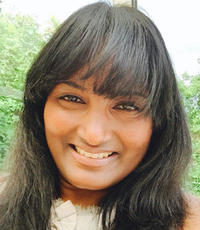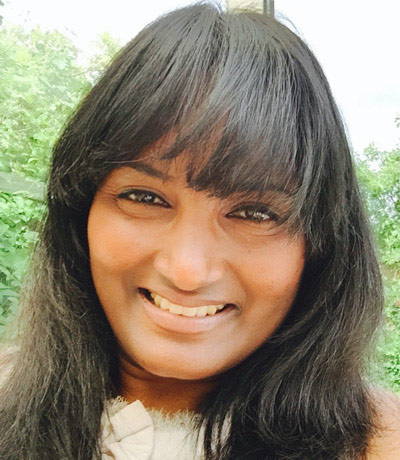"It is crucial that trainees are nurtured to strengthen the work force of the future in our amazing specialty" - An interview with Vijay Kunadian
Here is Dr Kunadian's point of view regarding women's place in interventional cardiology.
I think I probably faced “challenges” as a consultant and as an academic given that I was/am the only female.
Why are there still so relatively few women interventional cardiologists? Do you think that working conditions (e.g. exposure to radiation) may be an impediment on women embarking on this career path?
Interventional cardiology is a demanding specialty. It takes a long time to train, to gain knowledge and procedural skills.
It is still considered a male-dominated specialty.
Women can be put off by negative comments regarding interventional cardiology and perhaps not well supported.
It is also true that many women consider radiation issues as a barrier to choosing this sub-specialty since the radiation regulations for expecting mothers vary across different countries.
In the UK only 5% of interventional cardiologist are female, <1% are clinical academics.

Vijay Kunadian
What made you choose this specialty?
Believe it or not, I wanted to be an ECHO Cardiologist.
When I was training, you needed to have published papers and have a doctorate (MD or PhD) in order to obtain a cardiology specialty training number in the UK. My Doctor of Medicine-Research (MD, Newcastle University) project was all about coronary angiography and coronary artery blood flow. The project involved an in-depth analysis of hundreds of coronary angiographic images.
During this time I became very interested in interventional cardiology.
There were no female interventional cardiologists or trainees at the time in the North East of England. I am very grateful to my male consultants and mentors who were very supportive of what I was doing.
I was presenting my work from my MD project in nearly every cardiology congress, nationally and internationally (meeting and interacting with outstanding leaders in intervention), which again ignited my passion and enthusiasm for interventional cardiology.
You couldn’t get a consultant post in a tertiary cardiac centre in the UK at the time without an international overseas fellowship. So I applied and got accepted to Boston, MA, to undertake an academic fellowship with the TIMI/PERFUSE study group at Brigham and Women’s Hospital, Harvard Medical School, which ignited my passion for academia.
What is the main obstacle you have encountered to become an interventional cardiologist? How did you manage to overcome this?
As a trainee, when I look back, I don’t think I had major obstacles. I really went for getting good at what I was/am passionate about and enjoyed doing with a real hunger to learn; did not allow negative words influence me negatively and made the most of every opportunity that came my way.
I think I probably faced “challenges” as a consultant and as an academic given that I was/am the only female doing this.
If someone is interested in cardiology and any sub-specialty, he/she must be encouraged. I am here because my mentors (mostly men) gave me positive feedback, like ‘well done’, ‘you are doing fine’, ‘I am proud of you’, etc., which motivated me.
But I think also my determined and focused attitude to everything helped me.
From your point of view, what are the main assets you may have as a woman, compared with your male colleagues?
I live and practice in a predominantly Caucasian population in the North East of England. Patients love me, they love talking to me, particularly female patients.
They feel they can communicate better with me as I make it my point to empathize with them and hear their full story.
Over the years, I received some lovely comments from my patients which inspire me to do more and want to continually do the very best for my patients.
Do you feel your patients have a different attitude to you because you are a woman? Do you feel your colleagues treat you differently because you are a woman?
I always look at positive aspects in everything, what I can learn from feedbacks/experiences (positive and negative). I can think of many individuals (UK and abroad) who have helped shape my career and I have been very fortunate to work with great mentors, colleagues, professional friends from the very early stages of my career.
I am probably my worst critic. I always set the bar very high for me, which in a way helped me to become who I am today.
What advice can you provide to young women fellows wishing to pursue a career in interventional cardiology?
Go with your heart. Find good mentors you trust and respect to guide you. There are some incredible, highly accomplished individuals who would be willing to mentor and guide you. I had and still have amazing mentors in the UK and abroad.
Get your head down, stay focused and you will see the fruits of your labour down the line. In cardiology, and in medicine in general, there is no shortcut. Sometimes you might think ‘I am not going anywhere’, but these are times of growth and development.
The bottom line is to make the most of opportunities and support from mentors, work hard, be proactive, always be willing to learn, be grateful, respectful of others, and go with your passion. That’s what brought me here.
Ignore people who tell you that “if you choose cardiology, then it’s tough on women or “you’ll never be able to have a career as well as a family”.
It is crucial that students/trainees are nurtured to strengthen the workforce of the future in our amazing specialty where there is much need for dedicated and committed professionals.




